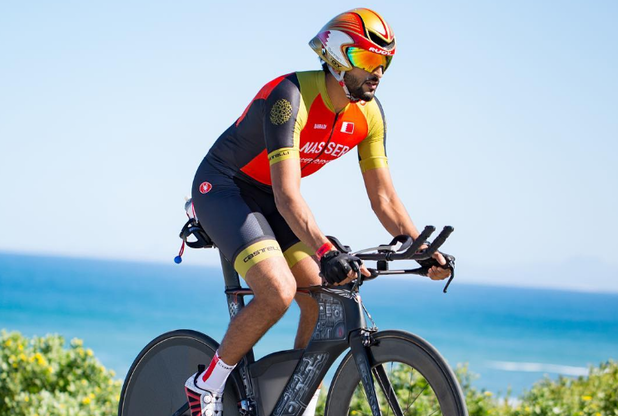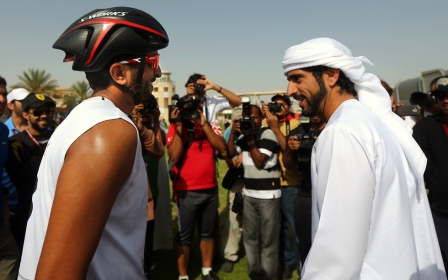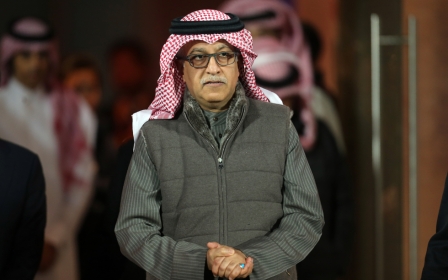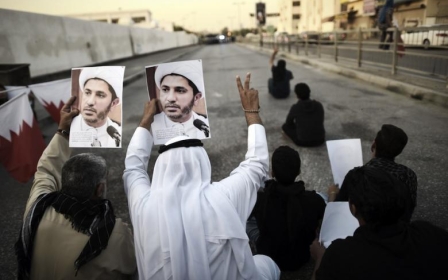Activists threaten to block Tour de France amid Bahrain torture allegations

Human rights campaigners could block the Tour de France if a Bahraini-bankrolled cycling team is allowed to compete in the world's most famous bike race.
The warning from campaigners comes after a Bahraini prince accused of involvement in the torture of prisoners during the country’s 2011 uprising announced plans to create a professional cycling team.
Prince Nasser Bin Hamad al-Khalifa launched the Bahrain Cycling Team last month, amid speculation in the cycling world that it will compete in the UCI WorldTour in 2017 with around $16.5m in funding.
Campaigners are now making plans to disrupt next year’s Tour de France if Bahrain Cycling Team is granted a WorldTour licence by cycling governing body UCI, amid speculation that protests may block the race.
The Bahraini team is expected to be officially unveiled as early as next month at an event accompanying this year’s Tour de France with Giro d’Italia winner Vincenzo Nibali likely to be signed as its lead rider, according to Cycling Weekly.
However, exiled Bahraini campaigners in Europe told MEE that they will stage a protest at this event unless UCI refuses to allow Bahrain Cycling Team to compete.
Marc Owen Jones, an academic and campaigner with advocacy group Bahrain Watch, said it was a “distinct possibility” that activists would seek to block the Tour de France and other elite cycling competitions during the UCI WorldTour if Prince Nasser’s team was granted a licence by UCI. Other activists said they would be “stockpiling on eggs and flour” in the run-up to the event.
“There is growing anger and concern about the race, not just from Bahrainis but [also] the cycling community,” said Jones. “Also given it is a huge media event, spread out across a number of countries, it is likely to generate cross-national cooperation among activists.”
Sam Walton, a UK-based human rights activist and cycling fan, said: “I love cycling and I would never do anything to disrupt a cycling race, but there may be people out there who would target a team coach or sponsors."
“Fans are already disappointed that Bahrain Cycling Team is being used to wash the blood off torturers' hands. They will make that known. Cycling will be a milestone for Bahrain, when people talk about Bahrain and cycling they will always also talk about torture and repression.”
The Tour de France covers more than 2,000 miles, giving countless opportunities for protesters to target cycling or team support vehicles. Brian Dooley, a campaigner at Washington DC-based Human Rights First, agreed that it would be “relatively easy” to disrupt open races such as the Tour De France compared to closed events, such as Bahrain’s controversial Formula One race, but said activists would need to carefully weigh up whether direct action was “counter productive”.
He pointed out that anti-apartheid demonstrations at sporting fixtures in the 1960s and 1970s had been effective, but added that the tactic was not longer “fashionable” and he would be surprised if Bahraini protesters attempted similar actions.
Suggestions of protest come after human rights campaigners sent a joint letter on Monday to UCI President Brian Cookson, raising “serious concerns” over Nasser.
The letter claimed numerous allegations of human rights violations have been made against Nasser, and argued that granting his team access to cycling’s top tier would breach UCI’s code of ethics for new teams, which must consider “ethical” dimensions, including the “images of cycling” and “principles of transparency and good faith”.
Sayed Alwadaei, advocacy director of the Bahrain Institute for Rights and Democracy (BIRD), one of the groups behind the letter, said campaigners were “considering action” if Nasser's team was able to take part in the Tour de France.
He told MEE: “The nature of the Tour de France certainly gives us more opportunity to protest. We are determined to make sure the voices of the victims are heard. We are going to make sure they are remembered.”
Alwadaei said it was “too early” to discuss details of planned protests, but said that Nasser had announced the Bahrain team to “whitewash his past”. He added: “There will be consequences.”
Nicholas McGeehan, Gulf researcher at Human Rights Watch, warned that protests could be “counter productive” and instead called on the UCI to take allegations against Nasser seriously.
He said: “It’s good that the UCI has a code of ethics, but if they want it to mean anything they’ll have to take a very serious look at the fact that Nasser publicly threatened people – including athletes – who protested against a government whose security forces were torturing people to death. If the UCI doesn’t see that as problematic, protests at races are probably inevitable.”
The government of Bahrain has consistently denied charges of human rights abuses and last year the Bahraini embassy in London said allegations against Nasser were “entirely false” and “politically-motivated”. It added that British police had “previously declined to investigate Prince Nasser on the basis of the insufficiency of the evidence against him”.
The campaign by BIRD and other activists against Nasser's role in the cycle team comes after the organisation led protests in February against Sheikh Salman bin Ebrahim al-Khalifa, the Asian Football Confederation president who chaired the committee set up by Nasser to identify athletes who had taken part in demonstrations, as he attempted to replace Sepp Blatter as Fifa president.
Despite starting the campaign as favourite, he eventually lost out to UEFA general secretary Gianni Infantino, as his lawyers denied he was involved in identifying footballers.
Parallels have been drawn between the two sporting rows, amid suggestions from analysts that the Bahraini government is seeking to place a member of the ruling family in a senior role in international sport to redeem the country’s image. “The cycling venture looks just as likely to backfire because it reminds international media of the country’s abysmal human rights situation,” said Dooley.
Middle East Eye propose une couverture et une analyse indépendantes et incomparables du Moyen-Orient, de l’Afrique du Nord et d’autres régions du monde. Pour en savoir plus sur la reprise de ce contenu et les frais qui s’appliquent, veuillez remplir ce formulaire [en anglais]. Pour en savoir plus sur MEE, cliquez ici [en anglais].




